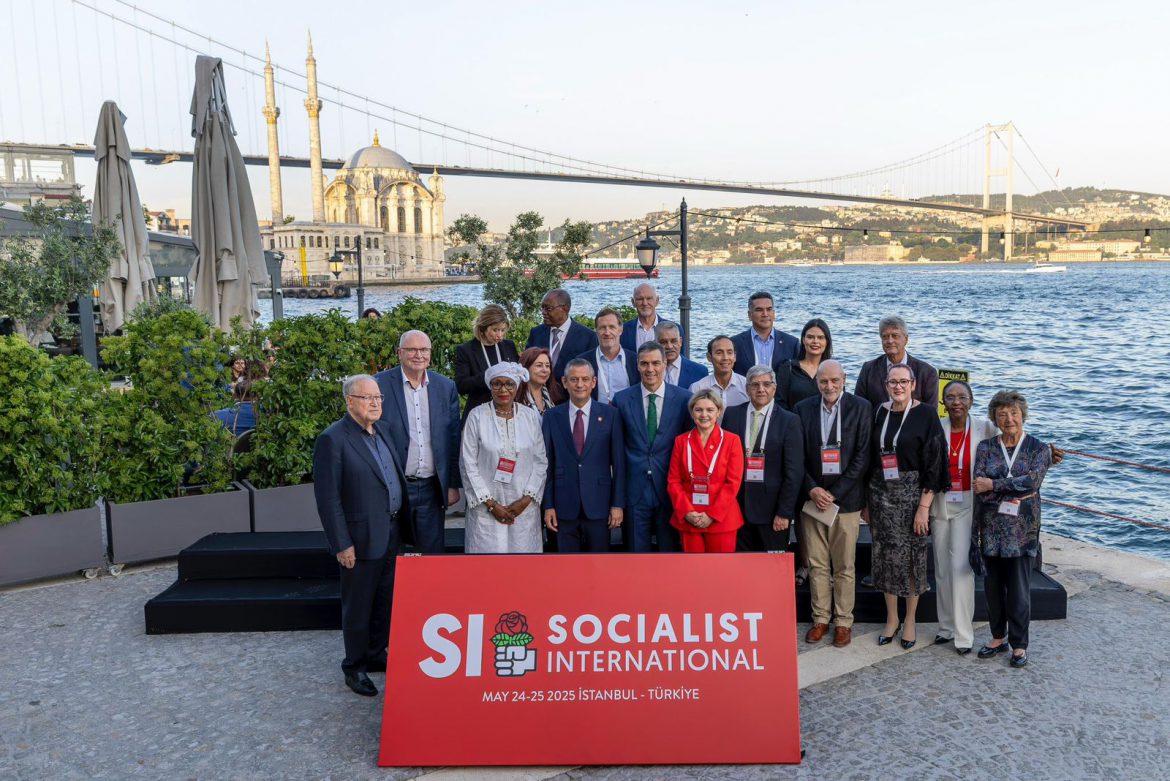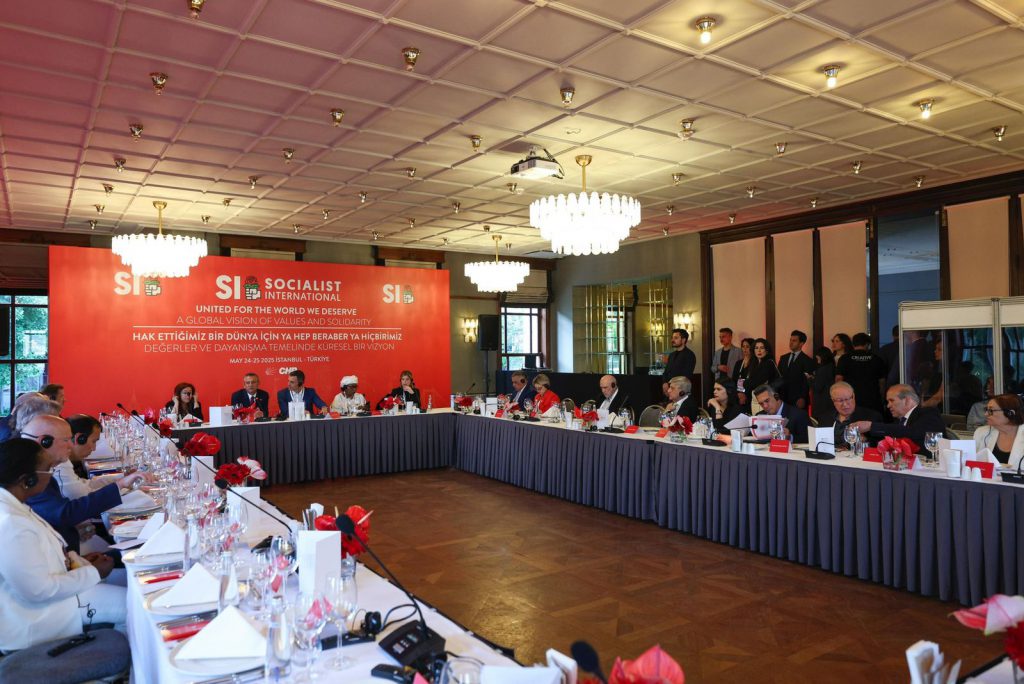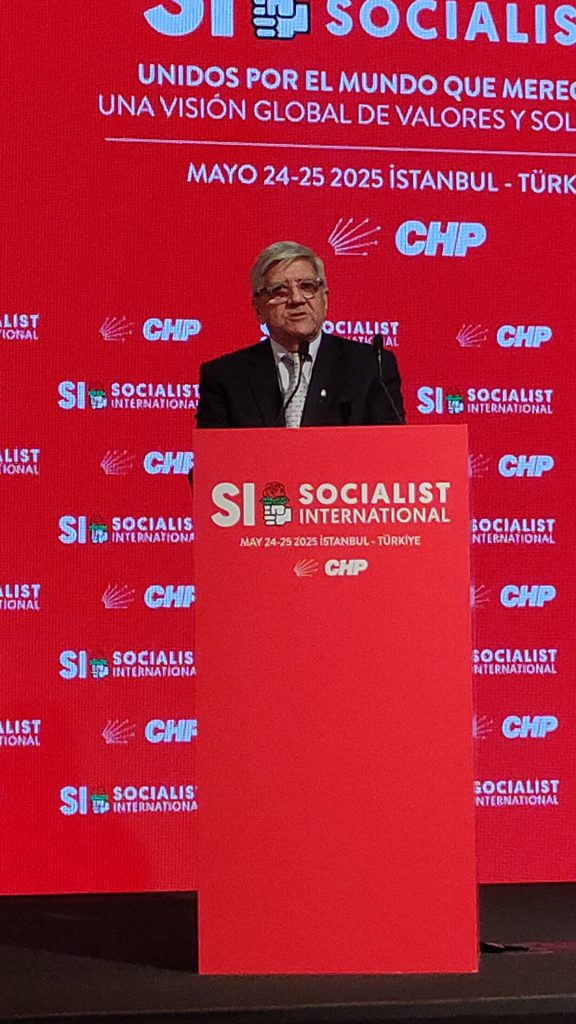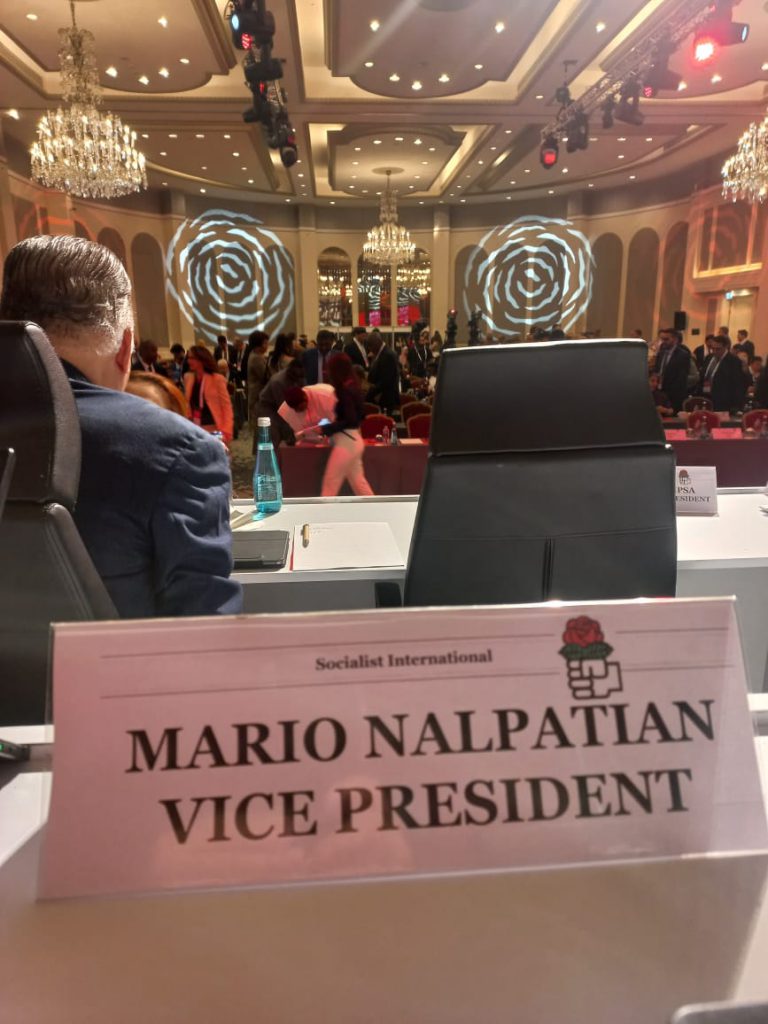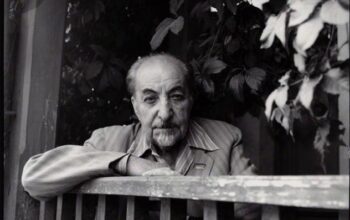The representative of the Armenian Revolutionary Federation-Dashnaktsutyun (ARF) to the Socialist International (SI), SI Vice-President Mario Nalpatian, participated in the meetings of the SI Presidency, the Finance and Administration Committee (SIFAC), and the Council, held in Istanbul from May 23 to 25, 2025. These meetings addressed issues concerning the organization, which includes 132 parties from over 100 countries. The host of the SI meetings in Istanbul was Turkey’s Republican People’s Party (CHP). The Presidency and Council meetings were chaired by the President of the organization, Prime Minister of Spain, Pedro Sánchez.
In the Council meeting on May 24, which functions as the organization’s highest-level meeting during the intervals between SI Congresses, Mario Nalpatian participated in the discussion of the second agenda item: “Overcoming Violence and Conflicts, Protecting Civilians.”
Nalpatian began his speech by noting that the most frequently spoken words during this assembly were peace, democracy, rights, and human rights—terms that, among others, reflect the current global experiences of humanity.
“Experiences and widespread fears—when we witness that today, the powerful of the world are attempting to establish the supremacy of force over the rule of law. I refer to this era as the post-legality period, when within countries, laws are ignored in favor of the ruling power of the day, and in international relations, force disregards international law, international humanitarian law, and the multilateral structure of the international system, seeking a return to a new era of empires and vassal states,” said Nalpatian.
“In the final months of 2023, the UN Secretary-General’s Special Adviser on the Prevention of Genocide, Alice Wairimu Nderitu, referring to the 1948 UN Convention on the Prevention and Punishment of the Crime of Genocide, raised an alarm that 75 years after the signing of the Convention, several groups remain under threat of genocide today. These include the Rohingya in Myanmar, the Tigrayans in Ethiopia, the Masalit in Sudan, the Palestinians in Gaza under Israeli occupation, and the Armenians in Artsakh (Nagorno-Karabakh), to whom the international community has not responded adequately.
“The case of Artsakh is a continuing crime. Armenians have been displaced from their millennia-old homeland by Azerbaijan, which is ignoring the ruling of the International Court of Justice to ensure the rights of the indigenous people and their safe, dignified, and collective return. Furthermore, in violation of international law, Azerbaijan continues to imprison Armenian captives and is ‘trying’ them under fabricated charges, including the leaders of Artsakh—among them our comrade and your acquaintance, Davit Ishkhanyan, whom you met and heard at this organization’s 2022 Congress. Azerbaijan is systematically destroying the religious and cultural heritage and monuments of the Armenian people.
“At this assembly, the names of Netanyahu, Lukashenko, and Aliyev were mentioned on several occasions. And that is not accidental, because their complementary, reinforcing, and destructive actions represent the grim face of our current era.”
“We heard many words and wishes for peace from various speakers at this assembly. There was even a reference to Armenia-Turkey relations. Armenia and Azerbaijan are currently engaged in a peace process—a process about which we have disagreements and questions. Nevertheless, we seriously believe in the idea of peace. Turkey is closely following this process and is conditioning its relations with Armenia on the signing of that agreement, thereby exerting additional pressure on Armenia. However, it is worth remembering that since regaining its independence in 1991, Armenia has always pursued the establishment of diplomatic relations with Turkey without preconditions, but Turkey has refused. If Turkey genuinely wishes to contribute to the establishment of peace in the region—a peace that must be just, lasting, and stable—it must re-examine its history and acknowledge its responsibility for the Armenian Genocide committed between 1915 and 1923. Imposed peace is neither just, nor stable, nor lasting,” concluded the ARF representative.
ARF Bureau International Secretariat

